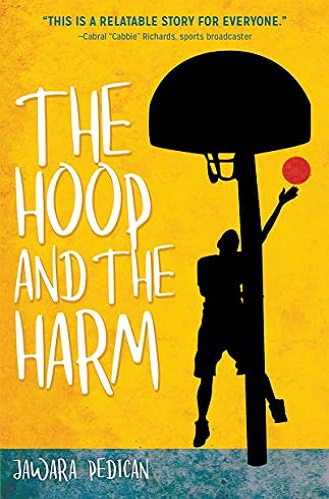From a very young age, Udoka Clendon has been pushed relentlessly by his family on a troubling pursuit for an athletic scholarship. Now he is burdened by expectations and self-doubt as he tries to reignite his passion for the game. This novel shows the trials and traumas of becoming fixated on a dream of sports stardom.
It’s unusual to mix a sports story with scenes of what goes on behind closed doors in sports therapy. But Udoka is suffering serious self-doubts and needs help, and Dr. Feldbrook may offer just what he needs. The therapy sessions allow the reader to glimpse Udoka’s growing-up years and family relationships (lots of rifts), as well as his complicated connection with basketball itself, which he both loves and is losing his passion and confidence for.
In an end note, the author explains his semi-autobiographical novel’s intent: “With memories from my playing days, through this novel I feel deeply empowered to challenge a norm that traditionally celebrates stoicism and deplores athletes—specifically, male, teen athletes—for presenting as emotionally vulnerable, ‘weak’ or lacking self-belief.”
The first-person novel has great dialogue and action (which even a non-basketball player can follow) and the players feel authentic. The pressure from coaches, teammates, family members and Udoka himself is totally relatable, and so is Udoka’s dilemma of who is most important to please: others or himself. And what does he really want, anyway? The story is deepened by subplots involving a past trauma and a girlfriend’s over-eagerness to help.
A few weak points: The novel kicks off with a mysterious letter not explained till the end of the book. (Perhaps the author thought that created an intriguing mystery, but it felt annoying to me.) Also, Chapter One opens with several pages of Udoka using psychobabble self-talk during a game – before we even get to know whose head we’re in and what this guy is all about. Hopefully readers can push past that to enjoy the rest of the ride.
The shrink’s tips to Udoka are gems within themselves: Win from within. Be a better you; focus on a better you… Failure is viewed as something that should be avoided, punished, feared. When really, failure is subjective to one’s own expectations—just like success, accomplishment and self-worth are.
Three other failings of this book involve…
- a) deliberately misleading the reader as to a supporting character’s identity. (There’s a fine line between dropping new pieces of information gradually into a novel to keep the reader guessing—and deliberately leading the reader astray.)
- b) The trauma that haunts Udoka feels unrealistic in that Udoka never pursues the truth, when it would have been easy for him to do so. (His excuse that he was too traumatized falls short.)
- c) And finally, the author neglects to help the reader tie together the trauma incident and the girlfriend—except for one throwaway line and their matching last names. (Many readers will miss that and feel stumped.)
Even so, it’s a courageous tale, not your average sports story. It shines a light on what many athletes won’t discuss or contemplate. It’s a recommended read, especially for those passionate about sport.
—Pam Withers


